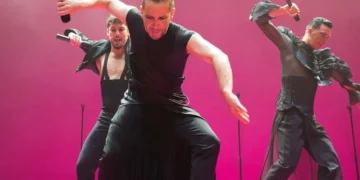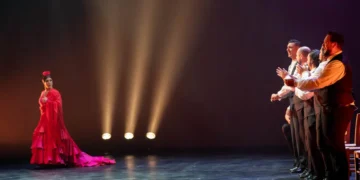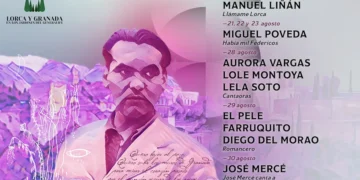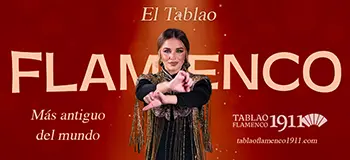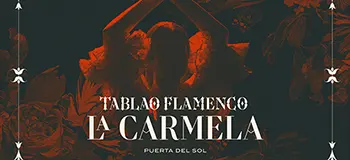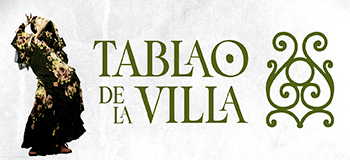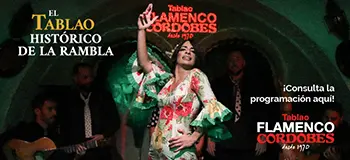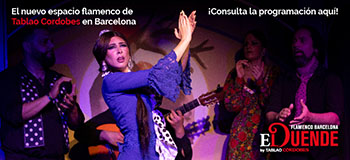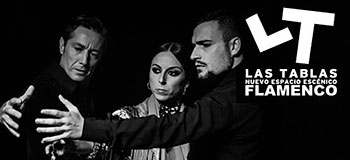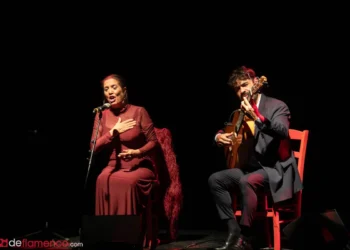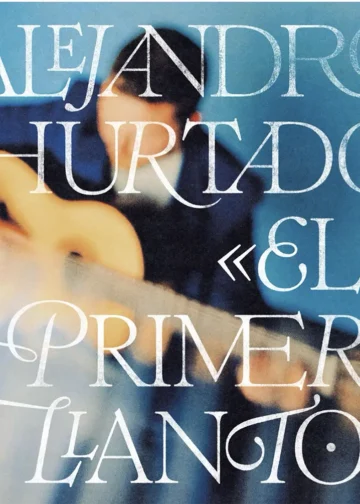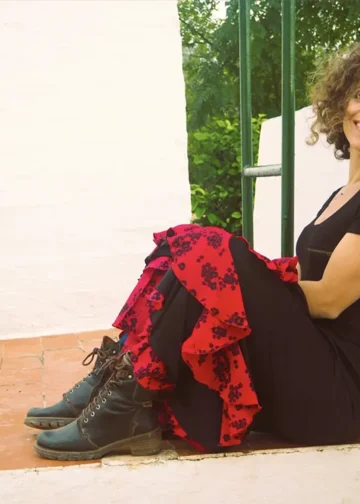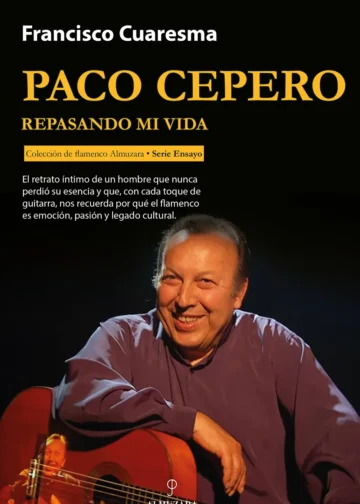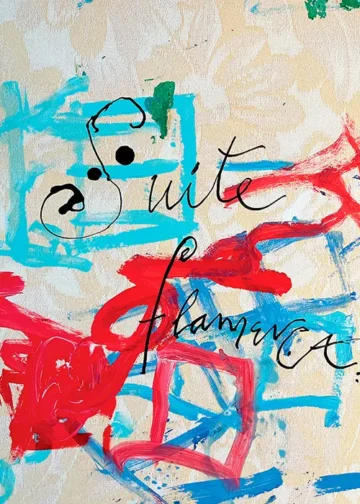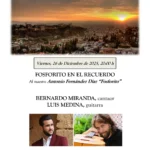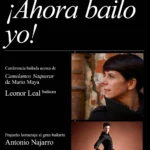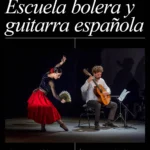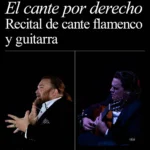|
VERANOS DEL CORRAL 4th week
|
||||||||||||
|
Text & photos: Antonio Conde There’s nothing more gratifying than when things come out right. And that’s how it was this last week of Los Veranos del Corral in Granada. A week loaded with activities and recitals that left a very good impression. Closing out this season, the dance courses were conducted by Manolete. A living legend of Sacromonte flamenco who never forgot his roots and is true to a style that makes an indelible impression. Just thinking about the farruca or alegrías he’s been interpreting on stage for so many years, gives an idea of what the week has been like at Carmen de las Cuevas where the dance course was given. The first night of the series caught the attention of flamenco fans who didn’t want to miss the cante of Canela de San Roque, and the dancing of Jesús Aguilera. With a nearly packed “house”, Cancanilla de Marbella offered his recital on Wednesday. He was accompanied by Chaparro and Salaíto on guitar. The second guitar was somewhat unnecessary considering it was a cante recital, and the bulk of responsibility fell upon Chaparro. Soleá por bulerías with two guitars, unnecessary as I say, tientos-tangos, seguiriyas and bulerías. Just enough to prove he knows what he’s doing. Well-measured and with lots of personality, he left no doubt that aside from his cante, he’s a born dancer, as demonstrated by the few steps he did and which triggered applause. In the second part, it was the dancing of the energetic Ramón Martínez. He opened with abandolao, a poor choice he didn’t quite pull off. The singing of José Carmona in soleá por bulería, accompanied by Juan Requena, and the explosive voice of José Valencia for malagueñas, woke the audience up. Martinete led into siguiriyas, and this time Martínez’ strength was put to good use.
Perhaps the continuous overuse of footwork that took precedence over dancerly moves, is what most marred the performance. Alegrías was somewhat better. An elegant silence and a provocative footwork section were enough to give substance to the dance and leave the audience wishing there were more. The best of Jerez guitar was saved for Thursday. Alfredo Lagos needs no presentation. His name is synonymous with a profound knowledge of guitar. He began with rondeña with a nod to Ramón Montoya. Then, alegrías, and fine fandangos de Huelva taken at a clip with very clean execution. Tangos that were nearly rumba were enhanced by José Carrasco’s tasteful percussion that allowed the guitar to breathe. And then some up-tempo bulerías from the land of compás, the way they used to play and with admirable technique.
In the second half, the stage shimmied and shook with the appearance of Ana Calí. This is one of these dancers who devours everything in her path. Accompanied by the cante of Juan Ángel Tirado and Antonio Campos, and the guitars of Alfredo Mesa and Rubén Campos, she filled the stage with taranto. Her dancing is powerful, open and even boastful at times. In one word, she is the distillation of flamenco. Martinete and debla with Campos and Tirado, pave the way for segiuriyas. Short, but well-intentioned. Her face full of mysticism, reminiscent at times of Carmen Amaya. Tangos cante gives Ana time to change costume, and she returns with alegrías. Again she reminds one of Carmen Amaya. But this time her countenance is happier, and footwork is the centerpiece of the choreography.
The end of the summer series promised to be entertaining and very flamenco. The closing shot was Manuel Liñán, one of the most promising young Granada dancers. On his own. Just him and his dancing, who needs more? Again, it was the ubiquitous Antonio Campos on stage, with José Anillo, who opened with malagueñas with the guitar of Antonia Jiménez and Arcadio Marín. Liñán came on stage and the audience was his. At least wait until he dances! Everyone was prepared to lavish praise on the dancer. He began with taranto that quickly morphed into tangos. A dance of precision that reveals many hours of studio time, and that’s what it was all about, surrendering to the sheer pleasure of dancing. Well-earned ovations were for the back-up as well as the central figure. If last week he surprised everyone with a sort of saeta from one of the balconies of the Corral, on this occasion it was fragments of the romance of Bernardo el Carpio. Campos is a complete singer who catches everyone’s attention and is showing up at numerous performances, especially at the Corral. José Anillo interpreted carceleras. The surprise was the tanguillo dance. With a Cordoban hat, a delightfully witty dance won over the audience who shook the ground with their enthusiasm. A guitar solo by Arcadio, and then Liñán ended with soleá. His dance is compact, with insinuated movements. He is capable of passing from the most perfect aplomb to the most radiant freshness without skipping a beat. 1st week: 2nd week: |
Descubre más desde Revista DeFlamenco.com
Suscríbete y recibe las últimas entradas en tu correo electrónico.










